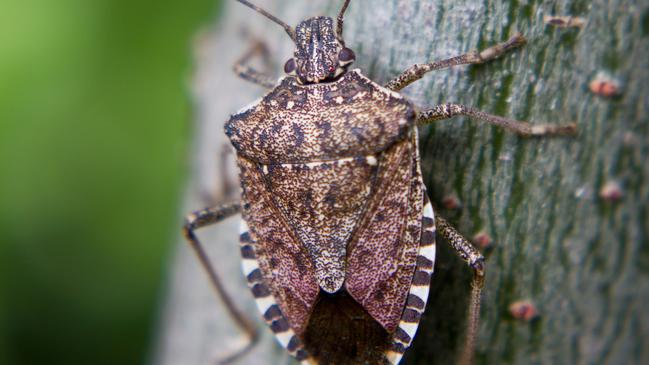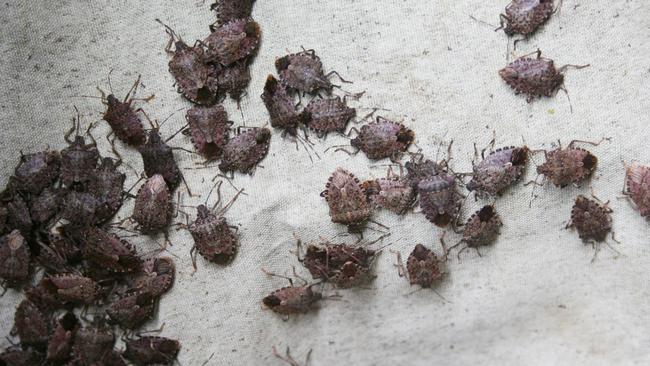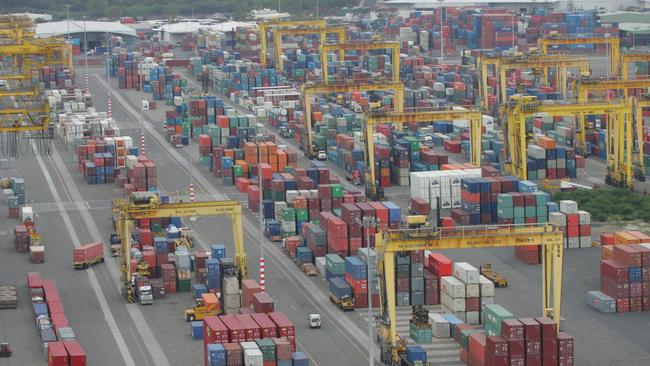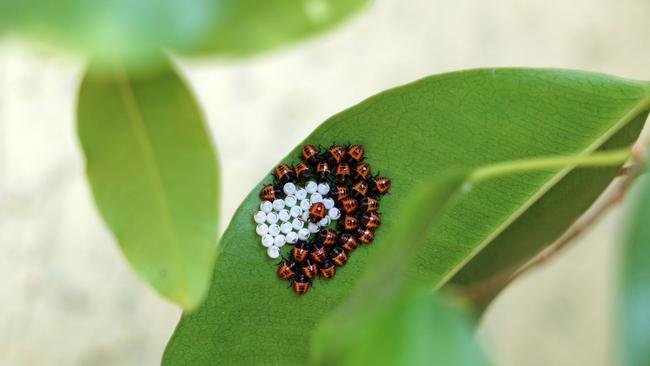A cargo ship infested by brown marmorated stink bugs refused entry into Australia
A cargo ship carrying stowaways that could have inflicted $20 billion worth of damage to Australia has been refused entry to our shores.
National
Don't miss out on the headlines from National. Followed categories will be added to My News.
A cargo ship infested by stink bugs has been refused entry into Australia, Federal Agriculture Minister Bridget McKenzie says.
The ship carrying more than 3500 cars and heavy machinery was found to have some “tiny but devastating” brown marmorated stink bugs.
“The current risk aboard the cargo vessel was deemed too great to allow the ship to dock in Australia,” Senator McKenzie said.
The insects would have had a decimating impact on Australia’s agricultural crops and horticulture if they were allowed to establish here, according to the Senator.

“Just as concerning is the impact these bugs can have on all of us,” she said.
“They are a real headache for residents, creeping into homes when the weather gets cooler, letting off an unpleasant smell and they’re hard to kill.”
The stink bug is an agricultural pest and can cause massive damage to vegetable and fruit crops by feeding on them.
Two years ago, the pests were discovered in a freight container from Italy, which sparked a warning to western Sydney residents.
The bugs found their way into the United States in the late 1990s and are now widely established. They are also spreading across Europe and are now in places like Italy, Greece, Georgia and Romania.
MORE NEWS: Credit card rewards deals that sting
Aussies forking out $10k a year for dream tattoos

In the worst affected regions, farmers have lost more than 90 per cent of their crop.
“In Australia that could equate to losses of more than $20 billion nation-wide,” Senator McKenzie said.
“Australia’s biosecurity import requirements are science based, clear and non-negotiable. Our international reputation as a source of safe, clean and green food and fibre for the world relies on our pest and disease free status.

“Our biosecurity system protects $6 trillion worth of assets including our $60 billion agricultural industries.
“Last year, 312 brown marmorated stink bug detections were made on vessels and goods arriving in Australia.
“Finding these bugs measuring less than two centimetres on such massive vessels full of cargo is no easy task.
“So far this year we have had 54 detections of brown marmorated stink bugs and my department works with importers and vessels to manage the risks they pose.

“The current risk aboard the cargo vessel was deemed too great to allow the ship to dock in Australia.
“Remember these nasties could have a real impact on all of us in the backyard and at home.
“Our biosecurity status is worth too much to our agricultural industries and to our shared way of life to put at risk.”
According to the Department of Agriculture’s website: “brown marmorated stink bugs pose a high biosecurity risk to Australia because of their tendency to hitchhike, highly mobile nature and the lack of effective lures.
MORE NEWS: Aussie schools in need of urgent reform
Freed Aussie Bali toolie ‘very sorry’

“If it established in Australia, this pest would be extremely difficult and expensive to manage, partly due to its broad host range. Preventing an incursion in the first place is a high priority for government and industry.”
The bugs come can come from East Asia, North America and Europe.
The can be recognised by their shield shape, adults are mottled reddish-brown with white bands on antennae, legs, and the rear margin of the body. They are approximately 1.7cm long.
They generally find their way to Australia as a hitchhiker on imported goods, vessels and aircrafts.
The Department of Agriculture says if the stink bugs were to become established here over 300 agricultural and ornamental plants would be at risk.
‘Marmorated’ means veined, like marble, and refers to their unique markings.
Minister McKenzie did not say where the boat had been scheduled to dock.
Originally published as A cargo ship infested by brown marmorated stink bugs refused entry into Australia


